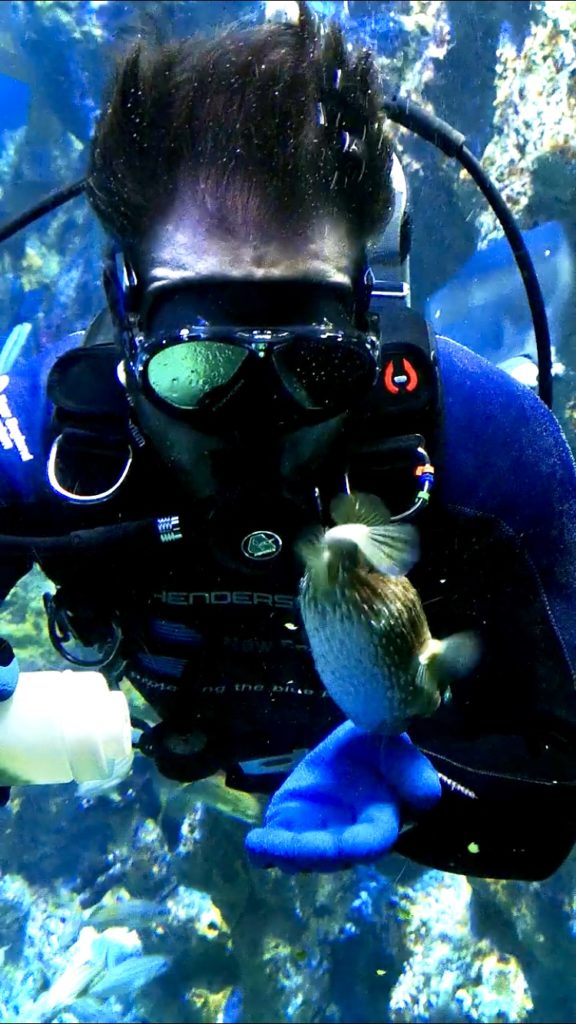Fritz McGirr will be taking over our Instagram account on April 22 to share his experience in the College of Science Three Seas Program. Follow along for an inside look at his time in Washington!

What is your major and year of graduation?
MS in Marine Biology, graduating in December of 2022.
Why did you decide to enroll at the College of Science at Northeastern University?
The Three Seas program offered by Northeastern was incredibly attractive to me as there is a focus on experiential field-based learning. As a diver, I was also interested in obtaining the American Academy of Underwater Sciences scientific diving certification included in the program.
Tell us about your previous undergraduate studies and how they led you here.
My undergraduate study culminated in a degree in classical percussion performance, so I have switched career paths quite a bit. I had a childhood dream of becoming a marine biologist, so I’m now excited to be realizing that dream after 12 years as a touring professional musician.
Tell us about the Three Seas Program.
The Three Seas Program is an accelerated research-focused graduate program that spends time in three separate ecosystems, with classes and diving included at each location. The first semester is spent in Nahant, MA, learning about the marine and shore systems of the Northeast. The second semester is split between Hawaii in a tropical environment and San Juan Island in the Pacific Northwest. The program’s final segment is a research project of each student’s choice that concludes with a personal manuscript delivered in the fall.

Tell us about your current experience in Washington. What are you doing there?
My time at Friday Harbor Labs has been amazing so far. I really am enjoying the climate and ecosystem of the Pacific Northwest. We have finished a coastal restoration course that concluded with a restoration proposal that was submitted to San Juan County for consideration. We then had a week of local diving orientation and soon after began our course on marine birds and mammals.
How long are you there for? Tell us what a typical day entails.
I will be here for a total of seven weeks. I typically wake early to get a run or yoga session in before making coffee at 7:30, followed by breakfast. We usually meet for a lecture at 8:30 and then break at 10:30 to do any number of things depending on the day. The day may involve research dives, labs, study, or lectures. The evenings are spent working on projects, studying, or walking into town for local food or an open mic night.
What’s next after this?
Between May and December, I will experience my research project, but that has not been finalized.
What do you hope to do post-graduation?
I am hoping to find a job in the Northeast U.S. I think a career track working towards being a dive safety officer is definitely something I am interested in.
How has this experience enhanced your marine biology knowledge and skills?
Because my previous education was entirely outside of the sciences, this program has vastly expanded my knowledge of marine biology and the skills needed to conduct marine research.
What is your favorite part of the program and why?
The best part of the program so far is being able to dive in so many locations and hone my diving skills within a scientific research environment.
Do you have any advice for prospective students hoping to break into the marine biology field?
Be open to ideas that you may have never considered. Any experience in statistical programming will definitely put you ahead in the field.

